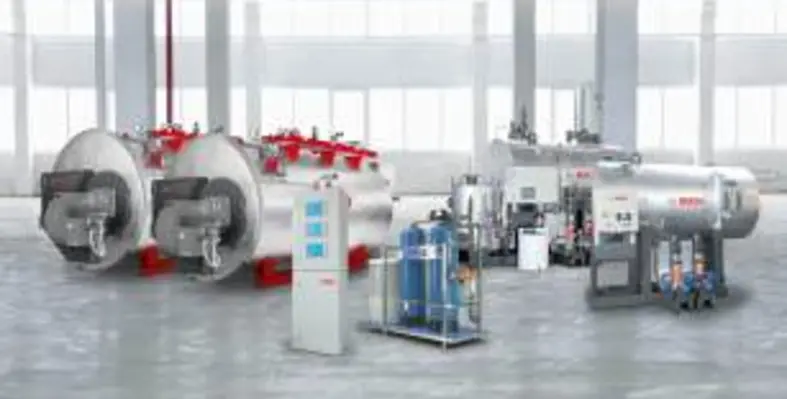At a time when efficient energy solutions are imperative to retain the earth?s delicate balance, Bosch Thermotechnology?s latest range of equipment help achieve and maintain that balance, and reduce greenhouse gas emissions
Energy efficiency is of prime importance in the social and environmental sphere, especially with the threat of global warming looming large. Several countries have now set targets to ensure they achieve climate protection. To achieve these targets, companies are focusing on smart technologies to reduce levels of industrial energy consumption.
Germany?s Bosch Thermotechnology Division has the necessary technology to meet the growing demand for energy efficient industry solutions. The division?s large systems business specifically focuses on the production of shell boilers, water tube boilers, heat pumps, large solar thermal systems and ventilation/cooling systems. The company is a major player in the international domain for industrial and thermotechnology installations, and its industrial units include Bosch Industriekessel GmbH and Bosch KWK Systeme GmbH.
Globally, the industrial sector accounts for a third of energy use and carbon emissions. However, countries are keen on reducing the level of greenhouse gas emissions and setting targets for the same. Germany aims to reduce emissions of greenhouse gases by 40 per cent, compared to the levels back in 1990. Primary energy consumption is expected reduce by up to 20 per cent below 2008 levels. In addition, widespread use of smart technologies could reduce industrial energy consumption by 20 to 30 per cent.
Bosch Thermotechnology, in particular, expects the global market for large industrial systems to grow at an annual rate of nearly five per cent by 2021. This expansion will primarily be driven by industrial growth as well as the need for efficiency enhancement in the face of rising energy costs. According to these expectations, annual growth will be strongest at around four per cent in Eastern Europe, with an emphasis on Russia. The Asian market, which has the highest volume, is looking at a six per cent growth. However, in North America and Europe, growth is expected to average at three per cent per year during this period.
Bosch?s large systems business solutions:
? Shell boilers: Rated for up to 55 tonnes of steam per hour, these large boilers are primarily used for the generation of heat for heating and processing purposes in industrial and commercial settings. They are used for heating private and public buildings and facilities, and for the generation of local and district heat. In January 2012, Bosch Industriekessel GmbH shipped its 110,000th industrial boiler.
? Water tube boilers: They have a maximum steam output of 220 tonnes per hour. Water tube boilers are mainly used in power plants for the generation of electricity or to process heat energy.
? Heat pumps: These pumps have an output of 4.8MW for heating hospitals, swimming pools, industrial enterprises, local and district heat stations.
? Large solar thermal systems up to a size of 10,000 sqm
? Ventilation and cooling systems: They are rated for air throughputs of up to 165,000 cu/m per hour, and mainly used in large residential, office and industrial buildings.
? Combined-heat-and-power (CHP) units: They have rated outputs of up to 2,145KW as well as ready-to-install CHP modules with output ratings ranging from 19 to 400KW (electric). The CHP units offer flexible solutions for generating power and heat in such environments as manufacturing plants, landfills, biogas plants, hospitals, swimming pools, residential complexes, administrative buildings and shopping centres.
? ORC systems: Organic Rankine Cycle systems are used for the generation of electricity from exhaust heat in the output range from 40KW to 375KW (electric). These plants produce electricity from exhaust heat that would otherwise remain unused. The ORC was invented by the physicist Rankine. This thermodynamic cycle uses an organic coolant to generate electricity at relatively low temperatures.
Besides the products, Bosch offers optimally coordinated modules to complete the systems. In the CHP segment, these include units for the purification of gas, use of biogenic gases, or units for cleaning flue gas by thermically burning the flue gas in order to lower emissions. In the industrial boiler segment, we offer a large number of energy-efficient modules from heat storage to waste water disposal.
The company is on the path to innovation as constant improvisations and development of new solutions take precedence at Bosch Thermotechnology. The division spent US$161mn on R&D in 2013, and will continue to innovate new technologies that would provide energy efficiently. With its sales and service network and the worldwide presence of the Bosch Group, Bosch Thermotechnology is well-positioned and effectively networked on an international scale.







